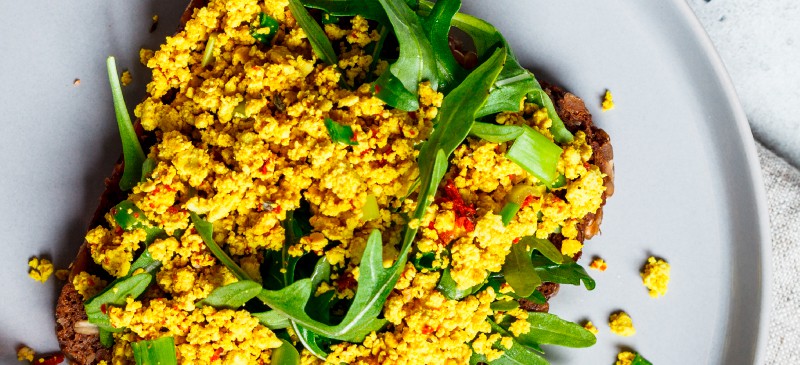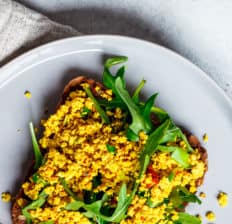This Dr. Axe content is medically reviewed or fact checked to ensure factually accurate information.
With strict editorial sourcing guidelines, we only link to academic research institutions, reputable media sites and, when research is available, medically peer-reviewed studies. Note that the numbers in parentheses (1, 2, etc.) are clickable links to these studies.
The information in our articles is NOT intended to replace a one-on-one relationship with a qualified health care professional and is not intended as medical advice.
This article is based on scientific evidence, written by experts and fact checked by our trained editorial staff. Note that the numbers in parentheses (1, 2, etc.) are clickable links to medically peer-reviewed studies.
Our team includes licensed nutritionists and dietitians, certified health education specialists, as well as certified strength and conditioning specialists, personal trainers and corrective exercise specialists. Our team aims to be not only thorough with its research, but also objective and unbiased.
The information in our articles is NOT intended to replace a one-on-one relationship with a qualified health care professional and is not intended as medical advice.
What Are Vegan Eggs? Nutrition, Benefits, Downsides & How to Use Them
June 4, 2021

If you follow a vegan diet, one challenge you might deal with is finding replacements for eggs, such as in baked goods and omelets. Lucky for you, people who avoid eating eggs for one reason or another have come up with a number of clever “vegan egg” substitutes, and vegan eggs are becoming more and more available.
Plant-based eggs, which can be made with ingredients such as turmeric, flaxseed and other seeds and beans, have a similar effect as regular eggs in terms of binding ingredients together in recipes. When you make vegan eggs with these healthy ingredients, they are also provide you with with some fiber, healthy fatty acids and nutrients, including B vitamins.
You can now even purchase pre-made vegan egg substitutes in major grocery stores, such as the product Just Egg, which also makes appearances at popular vegetarian restaurants across the U.S.
What Are Vegan Eggs?
A vegan egg is an egg-substitute that can be used by people following a plant-based diet in place of regular eggs.
Most often, vegan eggs are added to recipes like muffins, cookies, pancakes, breads, vegan meatballs, French toast, etc., to help bind and stiffen the ingredients.
They can usually be substituted for regular eggs in a 1:1 ratio, although it depends a bit on the exact recipe you’re making. Certain kinds can also be used to make omelets and frittatas too, although not every type of vegan egg is a good fit for this.
Types/Varieties
There are a bunch of different recipes available for plant-based eggs, some of which require only two ingredients (such as water and flaxseeds, which is also called a “flax egg”).
Because vegan eggs are very easy to make at home, many people make them in single servings when they’re needed. For example, you can make a flax egg using one tablespoon of ground flaxseeds soaked in 2.5 tablespoons of water for several minutes. The seeds absorb the water and form a gel-like consistency that is similar to a beaten egg.
Alternatives to homemade vegan eggs are commercial egg substitutes, such as the brand called Just Egg, which is made with turmeric and dried mung bean protein isolate, in addition to some other ingredients.
Other popular brands include Beyond Egg — which is made with a blend of plants, including sorghum, peas and beans — and VeganEgg, which uses algae protein (algal flour).
Other popular egg substitutes, such as in baking, include:
- smashed bananas
- applesauce
- silken tofu
- cornstarch
- soy protein powder
- chickpea flour
- arrowroot
What is the best vegan egg?
It depends on how you plan to use it and what types of nutrition benefits for you’re looking for.
Just Eggs is a good choice because it contains plant-based protein from mung beans, which can help fill you up. Many also find that it has a similar texture, smell and taste to regular eggs, and it scrambles like eggs normally do.
It’s also non-GMO, cholesterol-free and made with “clean, sustainable ingredients,” according to the manufacturer.
The downside to this product is that it’s made with some less-than-stellar ingredients, such as canola oil, natural flavors, potassium citrate and soy lecithin.
Where can you buy vegan Just Eggs?
Look for this product in health food stores or big grocery stores like Whole Foods, oftentimes in the freezer section. It can also be bought online on Amazon.
If you can’t find it anywhere, simply make your own vegan egg at home using flaxseed.
Nutrition
One vegan egg made by the company Just Egg (about three tablespoons) contains:
- 70 calories
- 6 grams protein
- 5 grams fat
How does this compare to regular eggs? Overall, the two are similar in terms of calories and protein, with a regular egg having 70 to 80 calories and about six grams of protein.
However, real eggs (especially those that are free-range and organic) are overall more nutrient-dense — containing higher amounts of vitamin B12, choline, antioxidants like lutein and zeaxanthin, plus some vitamin A, selenium and vitamin D.
One upside of consuming Just Eggs or VeganEggs is that they do provide protein and important amino acids, such as leucine, valine, phenylalanine and lysine, due to their inclusion of bean or algal protein powder. They are lower in cholesterol than regular eggs.
The good thing about flax eggs is that they provide some healthy fats, including omega-3s and omega-6s, as well as some fiber, protein and even antioxidants. They also contain lignans, which are polyphenols found in plants that act as precursors to phytoestrogens, allowing them to impact hormone production and sensitivity.
If you choose to make a homemade vegan egg using water and flaxseeds (a “flax egg”), it will contain about:
- 40 calories
- 2 grams carbohydrates
- 1.5 grams protein
- 3 grams fat
- 2 grams fiber
Benefits/Uses
1. Can Support Cardiovascular Health
If you use flaxseeds to make vegan eggs, you’ll benefit from a number of heart-related perks due to the seeds’ supply of omega-3s, compounds called lignans and fiber. Each tablespoon of ground flaxseed contains about 1.8 grams of plant omega-3s, which are anti-inflammatory fats found most abundantly in fatty fish but also in some seeds.
Flaxseeds seem to help the cardiovascular system through several different mechanisms, including:
- having anti-inflammatory and antioxidant actions
- helping lower cholesterol levels
- helping reduce blood pressure
- normalizing heartbeat rhythms
- helping prevent hardening of the arteries
Importantly, they can help keep plaque from becoming deposited in the arteries and damaging the vessels’ inner linings, which is a risk factor for developing heart disease.
For people who are prone to having high cholesterol or other heart issues related to inflammation, plant-based alternatives may be recommended to keep symptoms under control. While flax may be the best choice, Just Eggs also contains zero cholesterol, making it a decent option.
2. May Have Immune-Supporting and Cancer-Fighting Effects
ALA is a type of fatty acid found in flax that has been shown to decrease inflammatory reactions and several pro-inflammatory agents. This is one reason why consumption of flax and other seeds is thought to help reduce your risk of heart disease, cancer, stroke and diabetes.
Lignans in flax also have antioxidant qualities and positive effects of hormone balance. Flaxseed contains 75 to 800 times more lignans than most other plant foods!
Additionally, flax may reduce risks of certain cancers, especially those that are sensitive to the effects of certain hormones. For example, recent research suggests that regular flaxseed consumption may have a protective effect against development of breast cancer, prostate cancer and colon cancer.
3. Can Benefit Metabolic Health
Flaxseed contains both soluble fiber and insoluble fiber, as well as ligans. Higher daily intake of the fiber and lignans from flaxseed can support healthy blood sugar levels and help maintain normal insulin sensitivity, meaning it’s a good way to fight metabolic syndrome and issues like type 2 diabetes.
Do They Taste Good?
Do vegan eggs taste like real eggs in recipes?
If you’re using plant-based egg substitutes in baked goods or vegan meatballs, you probably won’t be able to tell the difference. That’s because eggs are not a primary ingredient in these types of recipes — rather they are added mostly for their binding effect.
However, if your goal is to make scrambled eggs or an omelet or frittata substitute, which normally uses many regular eggs, you might find that vegan eggs don’t quite taste like the real thing. Some people describe plant-based eggs as having a taste similar to cornbread, while others notice more of a cheesy or sulfur taste due to ingredients like nutritional yeast and black salt.
It’s also not possible to use flaxseeds to make recipes such as omelets or “scrambled eggs,” however another plant-based option to try in these types of recipes is firm, organic tofu, which can be combined with turmeric and spices like nutritional yeast and black salt to produce a scrambled egg-like taste and texture.
Risks and Side Effects
While commercial vegan egg products can come in handy if you can’t consume regular eggs, due to dietary preferences or even food allergies, they aren’t necessarily the most beneficial dietary choice.
Overall, eating regular eggs can give you a nutritional boost that substitutes won’t provide, so don’t necessarily aim to eliminate eggs from your diet unless you need to for heart-related or allergy-related reasons.
If you do decide to keep eggs in your diet, opt for organic, free-range eggs if possible. They contain the most nutrients, including omega-3 fats.
If you use plant-based eggs instead, stick to one to two servings daily so you have room in your diet to get plant-based protein from other healthy sources, such as soaked/sprouted legumes, seeds, nuts and whole grains.
Conclusion
- What do vegans eat for eggs? “Vegan eggs” are plant-based egg substitutes made from ingredients like seeds, dried beans and legumes, canola oil, and other binders, such as cellulose.
- One of the simplest subs for regular eggs is a flax egg, made with just flaxseed and water. This egg substitute offers benefits like healthy fats, fiber and protein.
- Because flax eggs (or other egg subs like mashed bananas and applesauce) don’t work well when trying to making scrambled eggs or omelets, some people use commercial vegan eggs instead. While these tend to taste similar to eggs, are lower in cholesterol and can provide you with protein, they also contain some questionable ingredients and additives and are lacking some nutrients found in real eggs (like B12, selenium and vitamin A).






